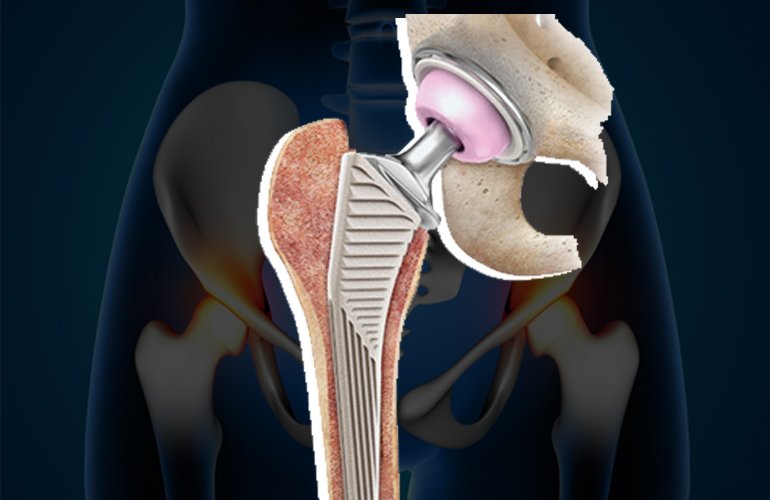Dr. Abhinav Kesarkar | Orthopedic Surgeon In Nagpur
Hip revision specialist In Nagpur

Hip revision specialist In Nagpur – Kesarkar Hospital
Symptoms Indicating the Need for Hip Revision Surgery
Persistent or increasing hip pain
Difficulty in walking or standing
Loosening of the implant felt as instability
Swelling around the hip joint
Dislocation of the hip prosthesis
Infection at the surgical site causing fever, redness, or drainage
If you are facing any of these symptoms, immediate evaluation by a hip revision specialist is necessary to prevent further complications.
Prevention – How to Avoid Hip Implant Failure?
While some causes of implant failure are unavoidable, you can reduce risks by:
✅ Maintaining a healthy weight to reduce stress on the hip joint
✅ Avoiding high-impact activities that can damage the implant
✅ Following post-operative physiotherapy and mobility guidelines
✅ Attending regular follow-up check-ups to monitor implant health
✅ Managing underlying conditions such as diabetes or osteoporosis effectively
Hip Revision Surgery Procedure
Preoperative Assessment:
Detailed medical evaluation, blood tests, and imaging (X-ray, CT scan) are done to plan the surgery.Surgical Removal of the Old Implant:
The failed prosthesis is carefully removed, along with any damaged bone or tissue.Bone Grafting (if required):
In cases of bone loss, bone grafts are used to strengthen the hip bone.Insertion of New Implant:
A new prosthesis is inserted, ensuring proper alignment and fixation.Closure and Recovery:
The incision is closed, and patients are monitored closely for a smooth recovery.
Benefits of Hip Revision Surgery
✔️ Relief from chronic hip pain
✔️ Improved stability and mobility
✔️ Enhanced quality of life and daily functioning
✔️ Correction of implant-related issues like loosening or infection
✔️ Prevention of further bone damage and complications
Why Choose Dr. Kesarkar as Your Hip Revision Specialist in Nagpur?
✅ Vast experience in complex orthopedic surgeries
✅ Personalized assessment and surgical planning
✅ Advanced techniques ensuring higher success rates
✅ Dedicated rehabilitation and post-operative care

